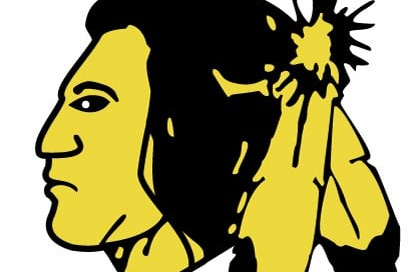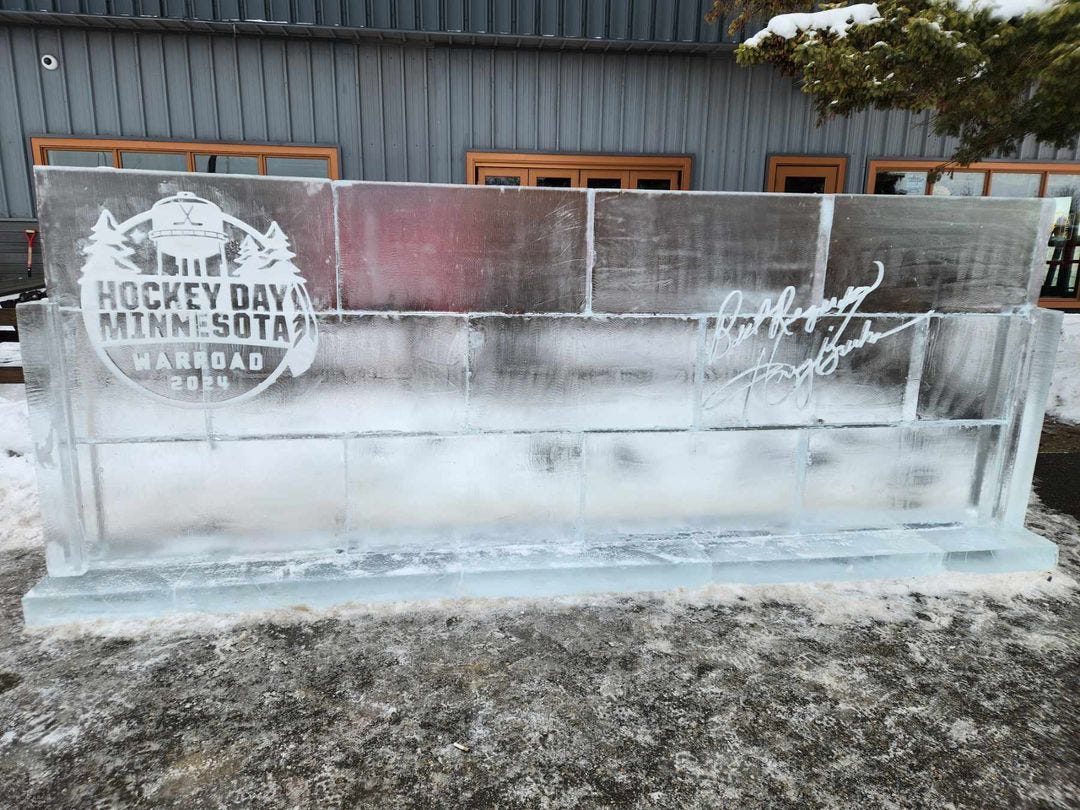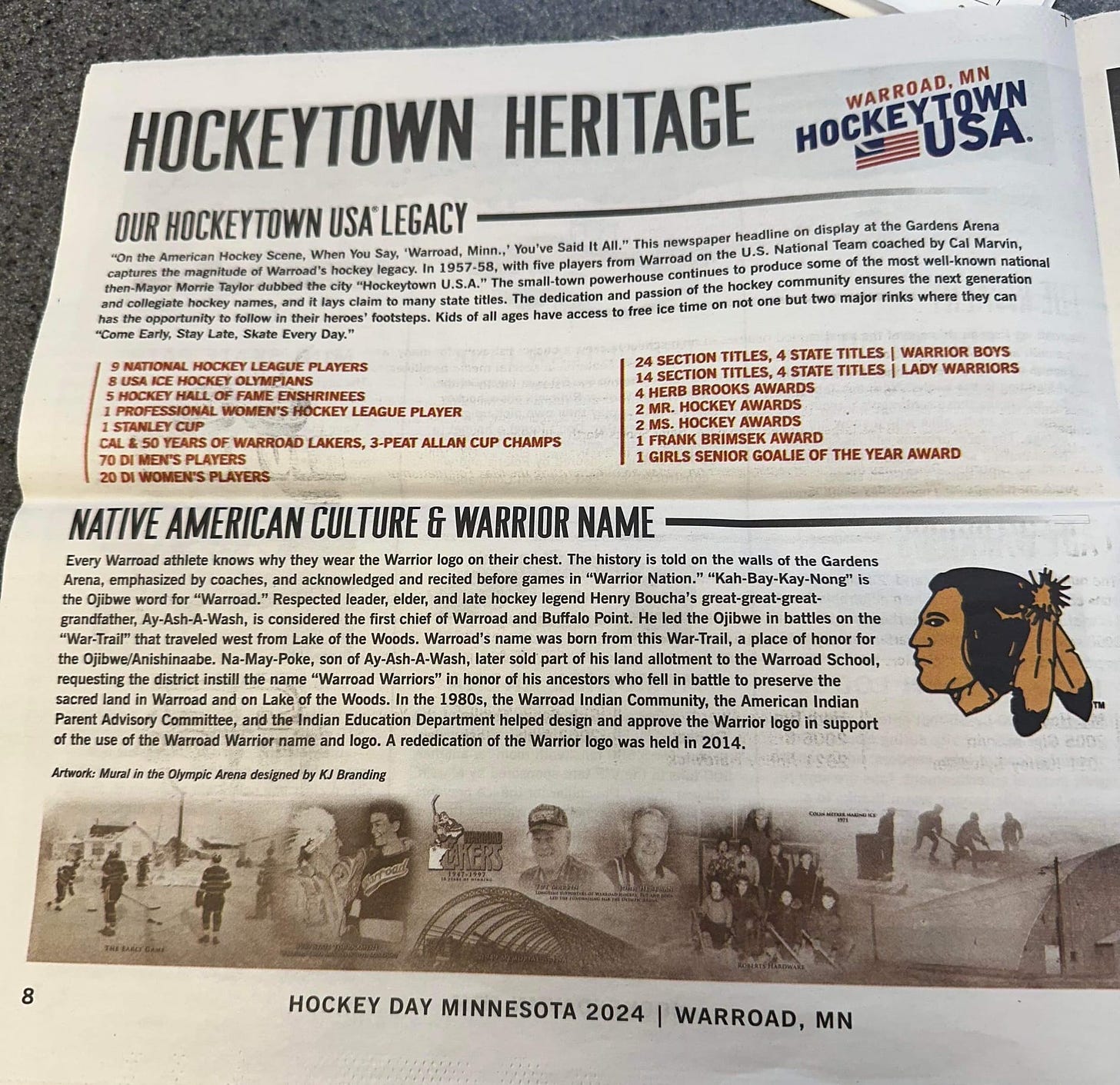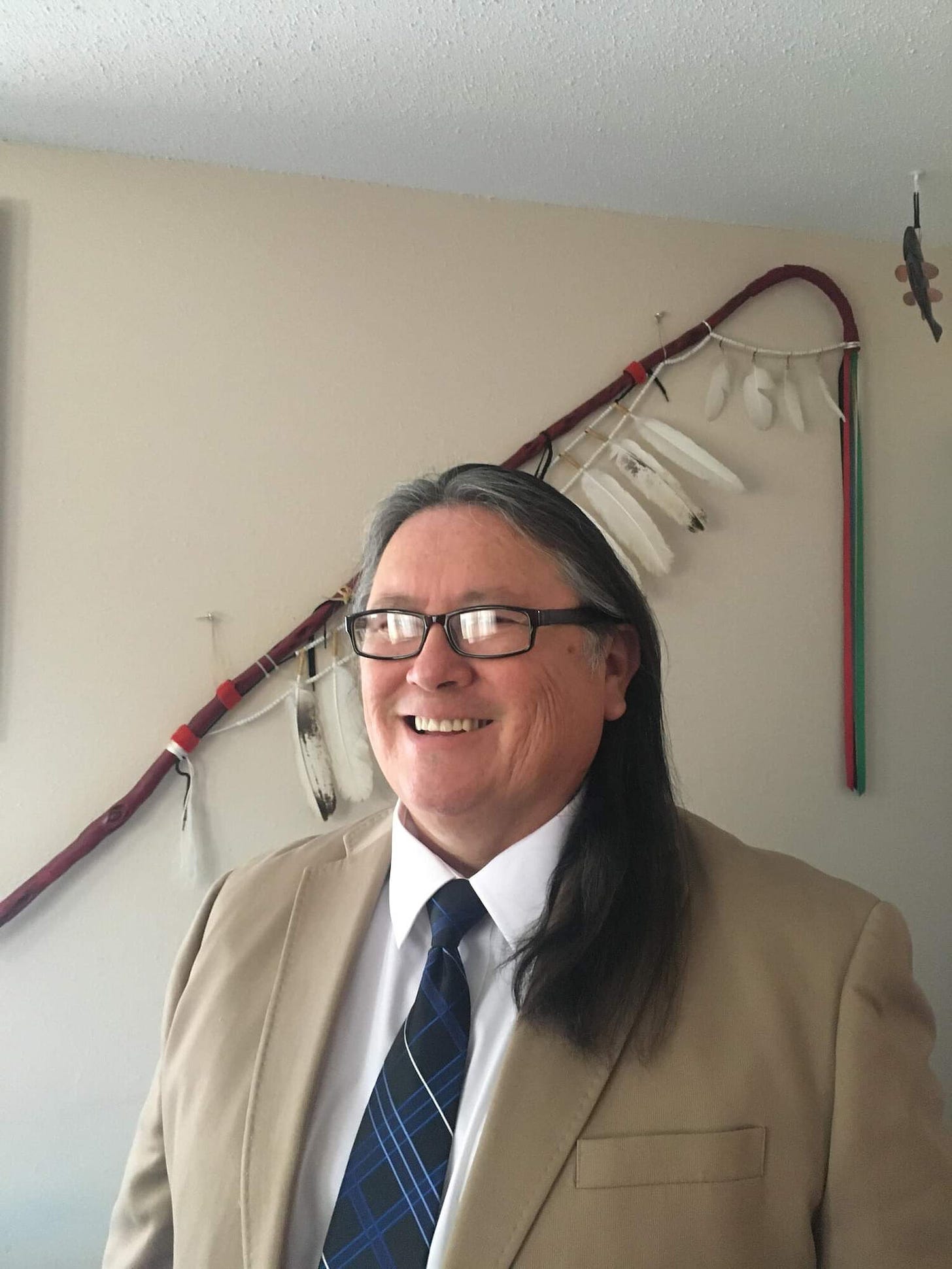Warroad made news headlines this week for Hockey Day Minnesota 2024, and last month for an exemption granted from a new state law to continue using the Warroad Warrior mascot and logo. One legendary hockey player stood at the intersection of these two news items: Henry Boucha, Ojibway Olympian.
All of this is good news for Warroad and good for local business.
Much like it was when I was a kid in the 1960s and bought postcards marked “Greetings from Warroad” with photographs of Kakaygeesick on them. Or when Kakaygeesick wore his full regalia as the parade marshal every Fourth of July. Or when Polaris, the snowmobile manufacturer in nearby Roseau, put him on the cover on their company newsletter in September of 1966.
What is the difference between cultural appropriation and cultural appreciation? Between pride and prejudice? And how is this related to what we remember and what we forget in history?
On Friday evening, Henry’s daughter, Tara Boucha posted on Facebook: “So glad the creator of the ice sculptures asked if he could use my dad’s signature. I love how this turned out.”
It was good to hear he had asked her. The permission piece is important.
Seeing much of Warroad come together and share the joy of hockey and pride in Ojibway heritage gives me hope.
But it’s not the only thing I see on Facebook last Friday night about Hockey Day Minnesota 2024.
Don Kakaygeesick’s sister, Karen, posted a picture of the promotional literature about the history of the Warrior logo handed out this weekend.
“This was brought to my attention. And I would like to set the record straight, my brother drew that logo way back when he was in high school and so he deserves the recognition of that logo. Please change that in this article and announce it at this Hockey Day MN. It’s not right that others are taking that right away from him…Be respectful of the logo and thank the rightful person who drew it. Thank you/miigwetch.” Karen [Kakaygeesick] Dethmers
I recognize Karen’s status update is about her brother deserving respect and recognition, but it’s more than that. Her plea to correct the historical record made me stop and examine the language more carefully.
This is how the second to last line on this page reads:
In the 1980s, the Warroad Indian Community, the American Indian Parent Advisory Committee and the Indian Education Department helped design the Warrior logo in support of the Warroad Warrior name and logo.
This language also appears on the school district and city websites and elsewhere in Hockeytown USA.
The sentence shifts responsibility for logo design from the artist to the Warroad Indian Community, the American Indian Parent Advisory Committee and the Indian Education Department. At the same time, the official statement appears to acknowledge the Ojibway community to verify the logo’s authenticity without identifying who created it.
Some of Karen’s friends and family commented on her post that they knew a committee didn’t design the logo.
Don did.
When he drew the Indian head in class, he left it behind at school. He never went back for it. He moved to Baudette, then to International Falls where he attended Rainy River Community College and it was the mid-80s when he returned home to Warroad. By then the logo was everywhere in town. No one had ever asked his permission.
Director Leya Hale in the soon-to-be broadcast documentary, Electric Indian reportedly includes a scene where Henry Boucha gives credit to Don Kakaygeesick for designing the logo currently in use. I have not seen the film yet, but Facebook comments from those who attended the Friday afternoon premiere screening responded to Karen saying they had heard Henry say so.
Henry also wrote this letter in support of Don’s nomination for the Northstar Lifetime Achievement Award from the Northwest Minnesota Arts Council which Don received in 2021.
“As long as I can remember, the Kakaygeesick Family, our Guides and Medicine people, have stood strong traditionally, and culturally through the assimilation of our people. The degradation of the Anishinaabe society, and our way of life on Lake of the Woods. Experiencing racism, prejudice, and discrimination throughout their lifetime, they have maintained our language, culture and traditions whereas most of us assimilated and left our traditions and culture behind. Amazingly, when we were ready to come home, they were there to greet us and teach us what they knew. AHO!” — Henry Boucha, letter in support of Donald Kakaygeesicks’s nomination.
I hear Karen. Let the historical record stand corrected.









An excellent and illuminating piece, Jill, that will resonate with different communities and artists.
What great research!!!! Fascinating and important work....I'll pass your article along to my son and his partner who lived in Minnesota for 20 years before moving to Ithaca. Thanks!